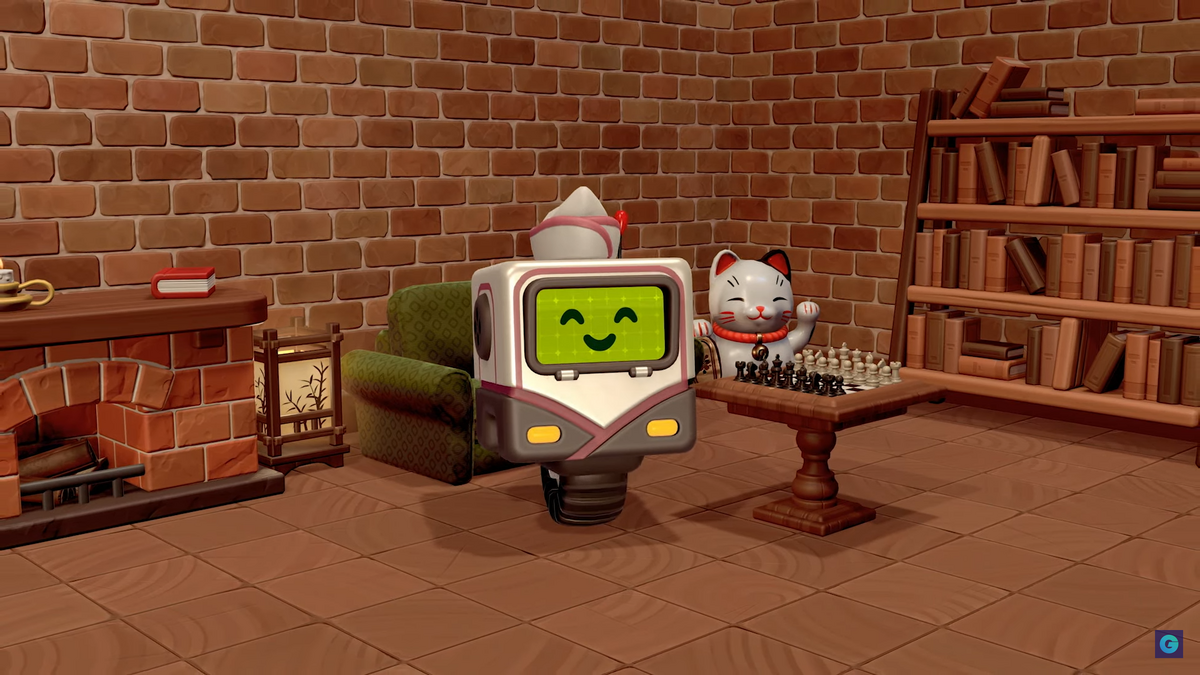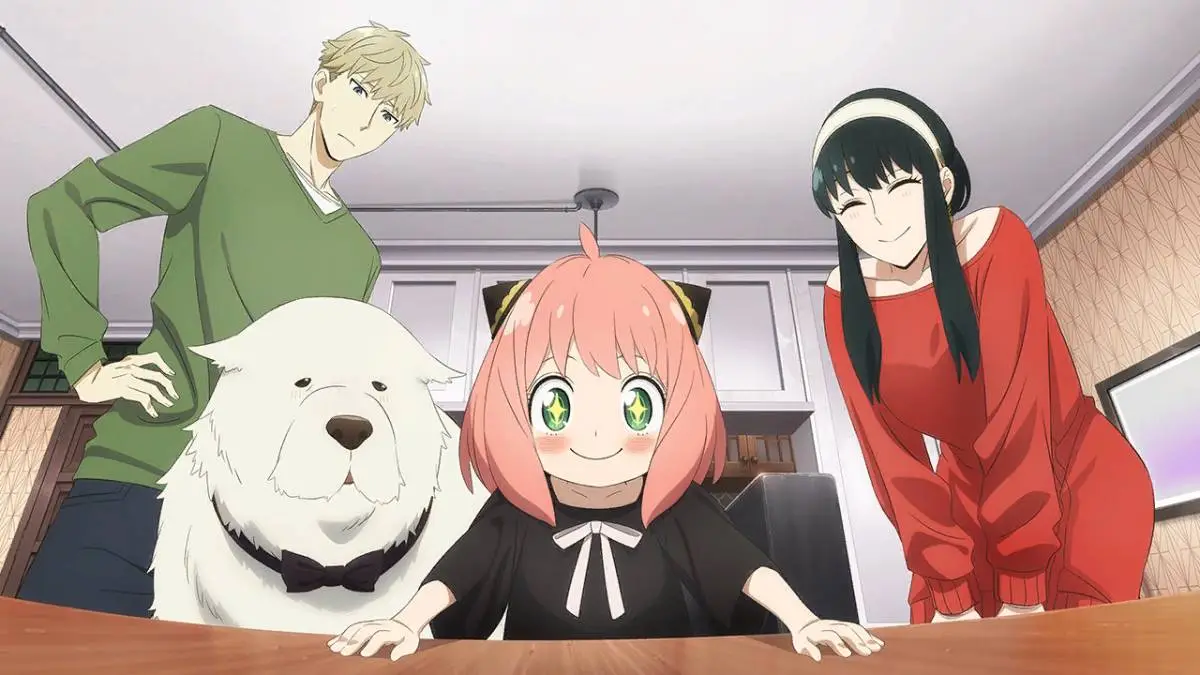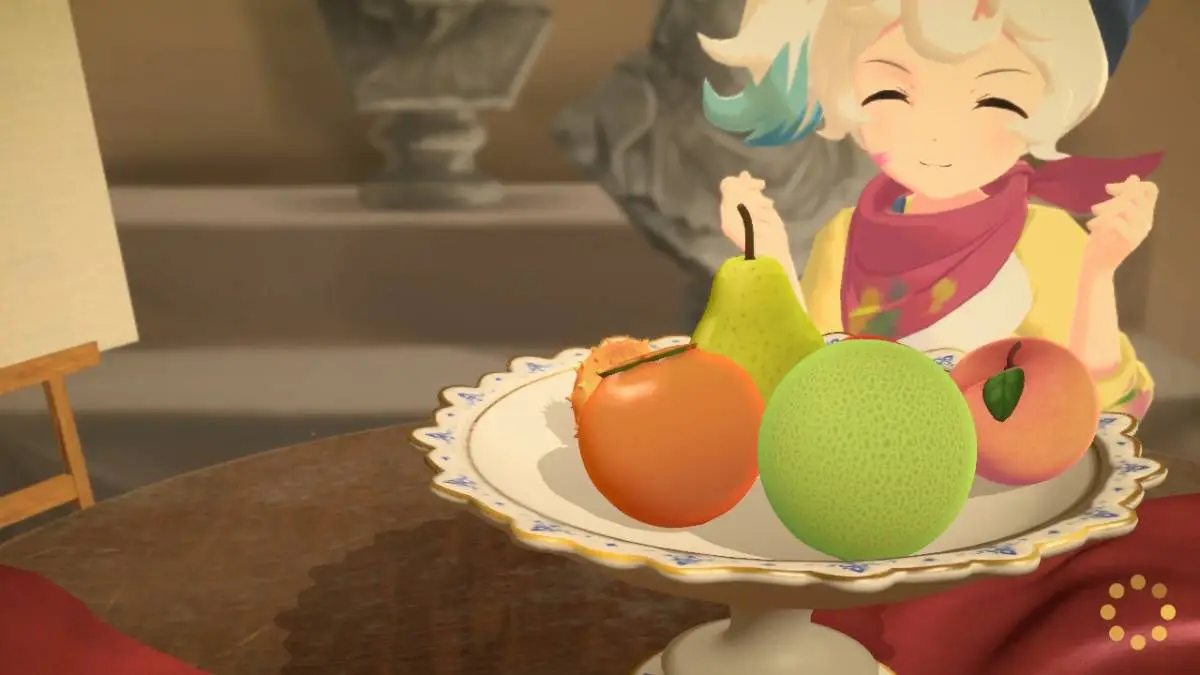When you first get Rolling Hills: Make Sushi, Make Friends, that title is not kidding; you truly spend your time in Rolling Hills making friends and making sushi. Despite its simple gameplay loop and plot, Rolling Hills is a relaxing game that finally made me understand the appeal of the so-called “cozy” genre.
The game Rolling Hills follows Sushi Bot, a sushi-making robot, who moves to the titular town of Rolling Hills. It’s kind of an obscure place, but the residents hope the novelty of a sushi-making robot can revitalize the town. As you play through the story, you meet lots of newcomers to town, as well as learn that there’s a curse over Rolling Hills, dooming it to obscurity. Well, that’s not good! With the help of the citizens, you work together to complete several rituals to lift this curse and put Rolling Hills back onto the map. At its heart, it’s a story about community. The writing is very simple and it wears its themes on its sleeve. But complexity doesn’t always make a story better and Rolling Hills is testament to that.
Rolling Hills: Make Sushi, Make Friends has a very addicting gameplay loop. I often found myself thinking that I wanted to go in and make some sushi for a bit to unwind after work in real life. Each day is fairly short, as there’s not much to do in the game. Every day, you can purchase items from the various characters around town, spend some time with them in the cafe, and then it’s back to the grind. Meal service lasts about three rounds, but customers tend to only eat three plates of food before they leave. Because of how short and bite-sized each day is, it was pretty easy to play for hours on end without realizing it.
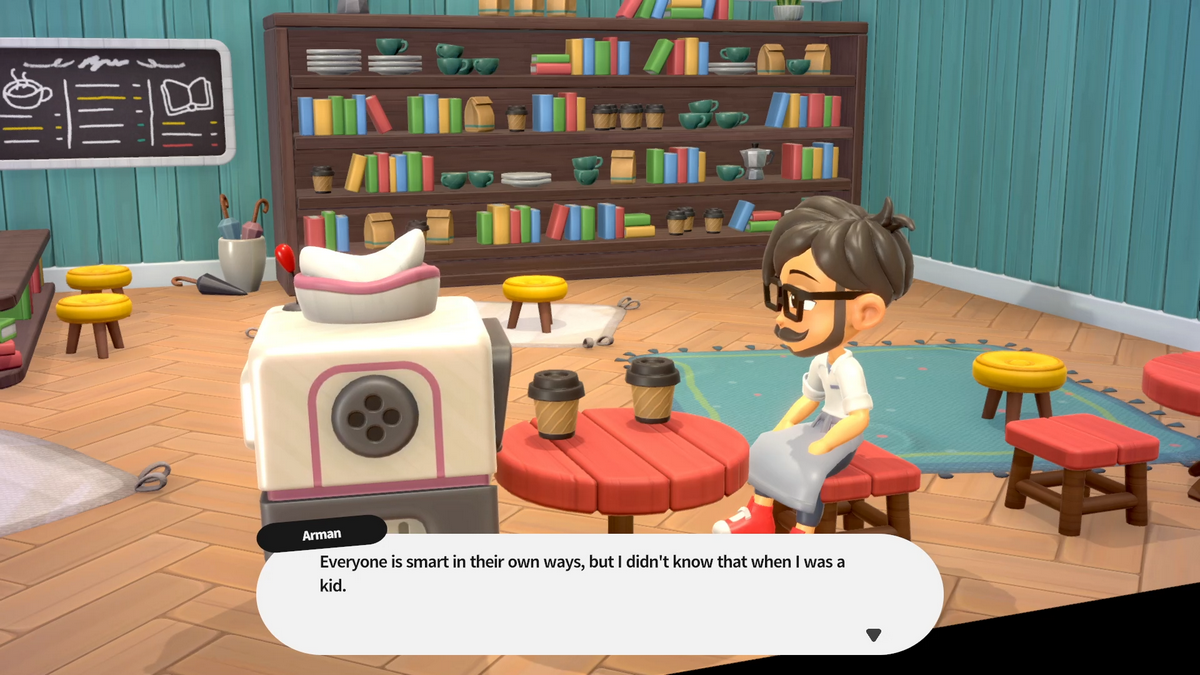
As for the meal service portion, Sushi Bot is not actually making any sushi. Another robot is, making several plates at once and then putting them all out on a conveyor belt. Sushi Bot’s job is closer to that of a waiter. When a customer comes in, they order a flavor, along with a quality. For example, they might want a Veggie dish with a quality of 5. Your job then is to find a corresponding dish and give it to them.
If there aren’t any dishes that match the customer’s description, you can either bite the bullet and give them another one that’ll net you less stars, or you can restock the conveyor belt. Truth be told, I’ve given a customer a meal under the quality they wanted, or a meal that was the right quality level but a different flavor. There’s no real downside to this, as far as I could tell, outside of the customer giving you less stars for that meal. They pay when they walk in and bad reviews don’t give you less foot traffic. I suppose this was a way to keep the game from being too frustrating.
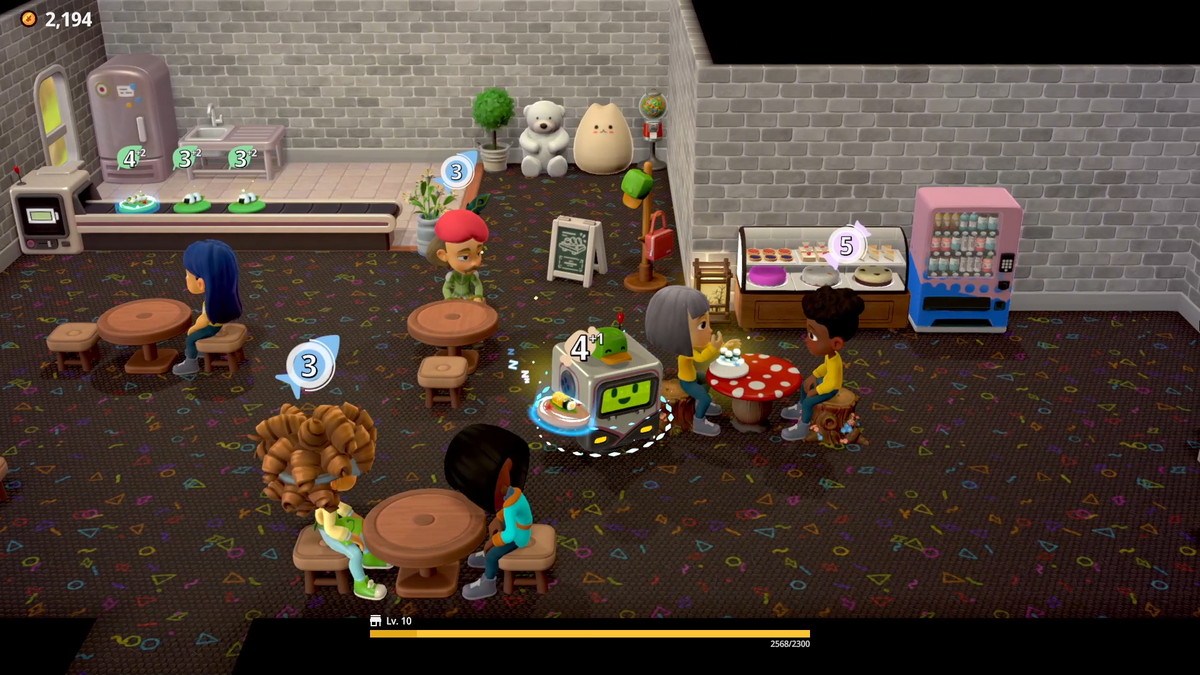
As you level up your restaurant level, you have to start juggling more than just orders. Customers can fall asleep or take flash photography of Sushi Bot (which can stun him). I understand customers complaining about dirty tables, but some customers give me a bad review if I don’t wake them up when they fall asleep at the table and they leave early. It’s hilarious because they really don’t need to. Sushi Bot doesn’t chase them out or anything. I assume it’s like an all-you-can-eat or buffet where there’s a time limit (especially since customers in Rolling Hills pay at the door). But the image of someone writing a bad review on Yelp even though they were the ones who fell asleep at the restaurant is so funny to me. It’s ridiculous, but I can definitely see people raising such an absurd complaint in real life.
These recent years, “cozy” games have become something like the “soulslike” genre. A lot of companies sell their games as a “cozy” one, even if it’s not. Rolling Hills really did feel like a cozy game though, in the actual meaning of the term. Everyone in town is very nice and sweet, the game doesn’t punish you for your failures, and there aren’t very high stakes. Stardew Valley, for example, is a pretty famous cozy game, but the unerring passage of time can make it a little stressful. I always want to make my money’s worth when it comes to both profit and harvest. Animal Crossing too sometimes became less than cozy due to mechanics like flower breeding and island creation. In that sense, the game’s simplicity and lack of a calendar system made it easy to just focus on making sushi every day.
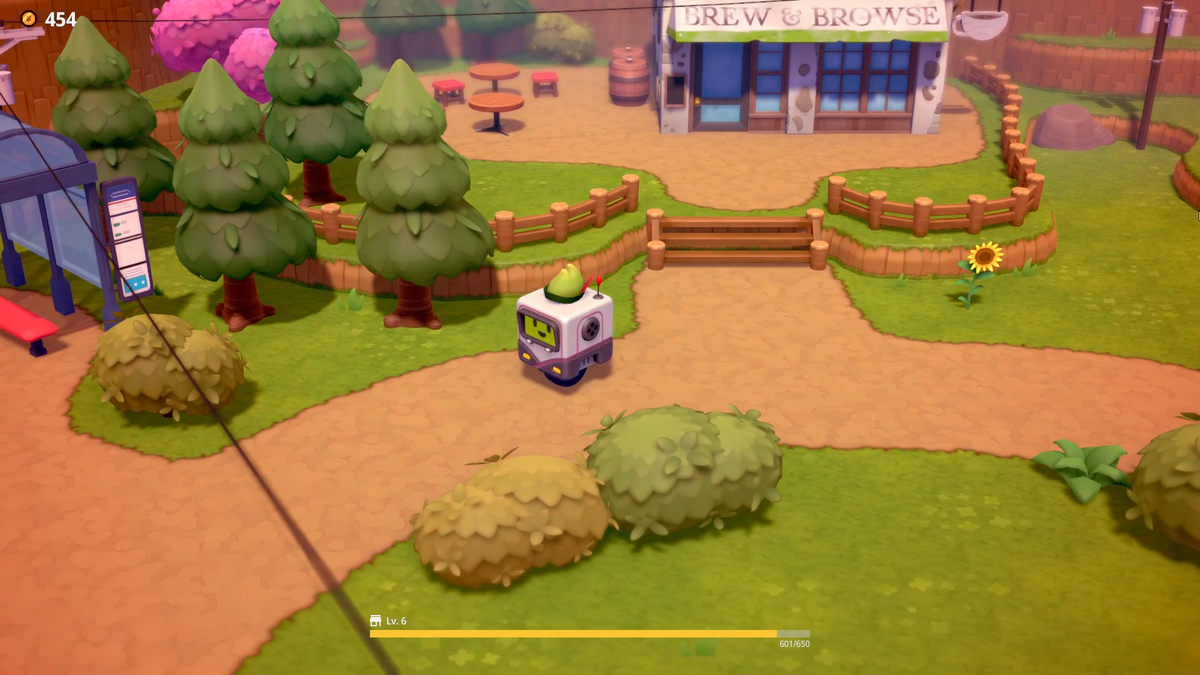
For all the praise I heap on Rolling Hills, it does have its share of minor issues. This is a personal preference, but I don’t like the method of resetting your conveyor belt. It looks like the sushi disappear into space, so it’s not as if Sushi Bot trashes them. However, it still feels a little bad to see perfectly good sushi going to waste like that, especially if an entire conveyor belt of sushi has to go due to customer demand. I know it’s not real, but it’s still bad to see in the early levels when there’s more time to hang around and zone out.
As well, after meeting Gibson, you can unlock a little helper robot. Even after leveling up Gibson’s friendship, the robot is more a hindrance than anything. It’s supposed to help Sushi Bot by cleaning and upgrading furniture around the restaurant. But it’s too slow to get at tables before customers complain (meaning it’s easier for me to manually take care of it) and it can block both Sushi Bot and the customers’ paths. I wish I could sell it for scraps.
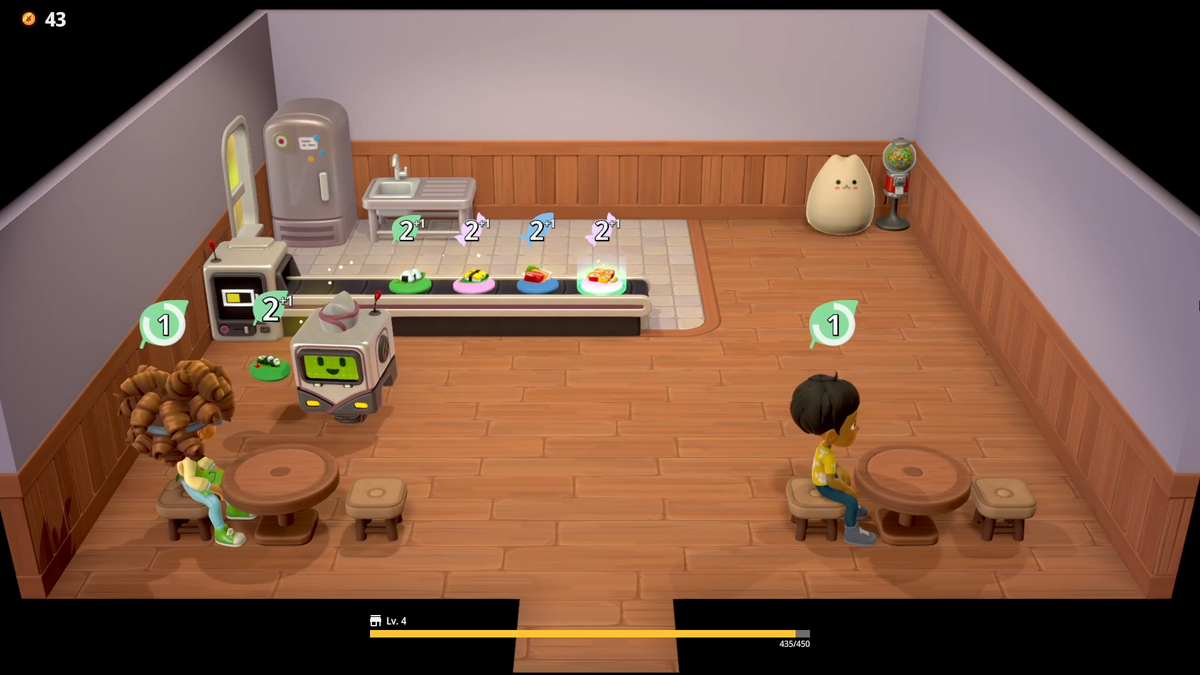
Rolling Hills: Make Sushi, Make Friends is a sweet and cute game with an easy gameplay loop that keeps me coming back for more. With all the customization options, as well as so many different recipes to max out, there’s quite a lot to do even if you’re not interested in the story. Just make sure you have the number of your local sushi shop on speed dial! You’re going to want a plate of nigiri or two while playing this game.
Rolling Hills is readily available on the Xbox One and Windows PC. Windows PC version reviewed.
Serve up sushi as a robot chef in Rolling Hills, a life sim about running your own restaurant in a cozy village. Make new friends, purchase ingredients, enhance your shop, and improve the lives of your neighbors as you perfect your craft! Windows PC version reviewed.
A cute game where you buy ingredients, spruce up your restaurant, and make sushi, all while playing as an adorable little robot.
- Rainbow recipes are king, so I tended to level them up first.
- The issue about the food waste became moot after I raised my restaurant level, since I became so busy I stopped caring.
- The aesthetics of my game are not really my cup of tea, but somehow I can't imagine the game looking any other way.
